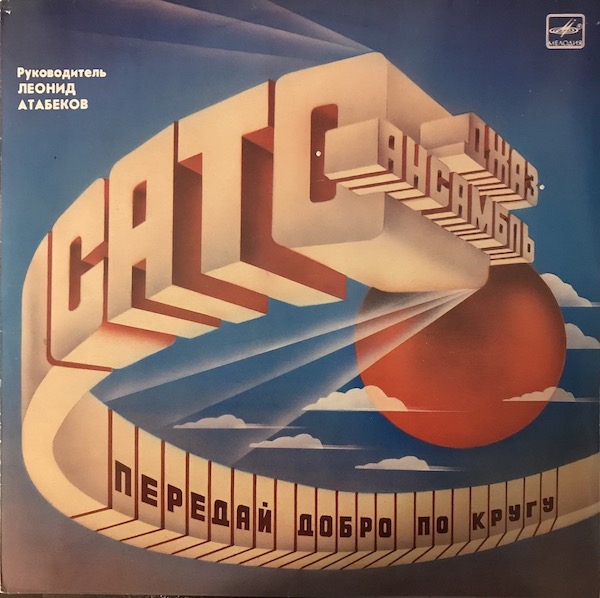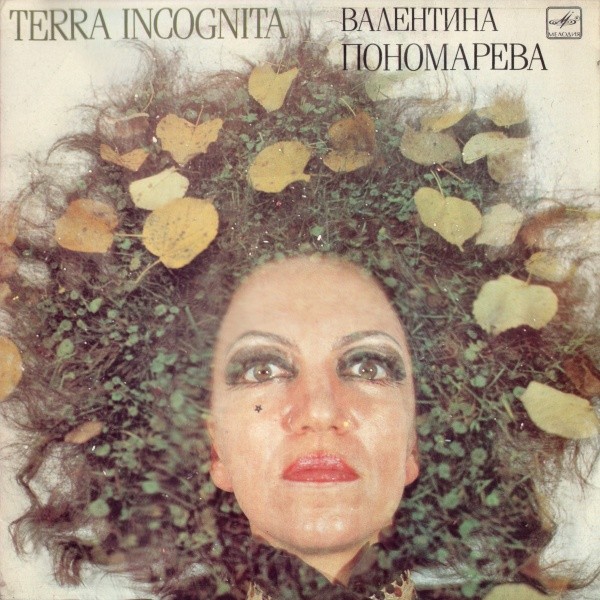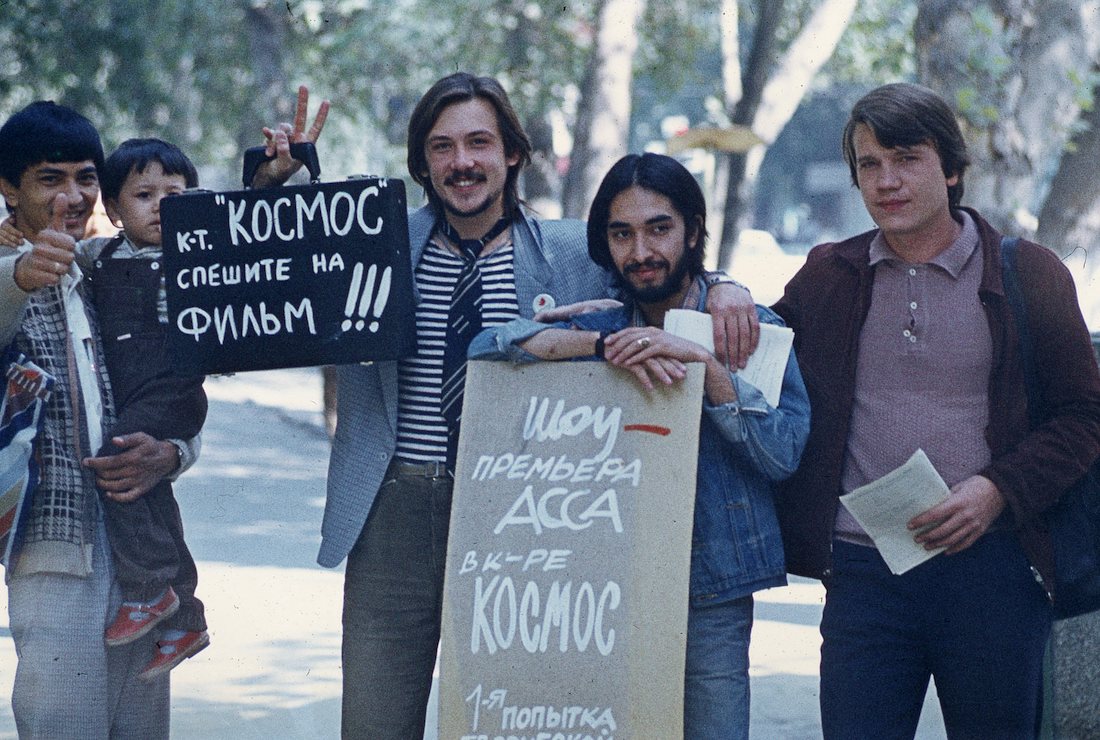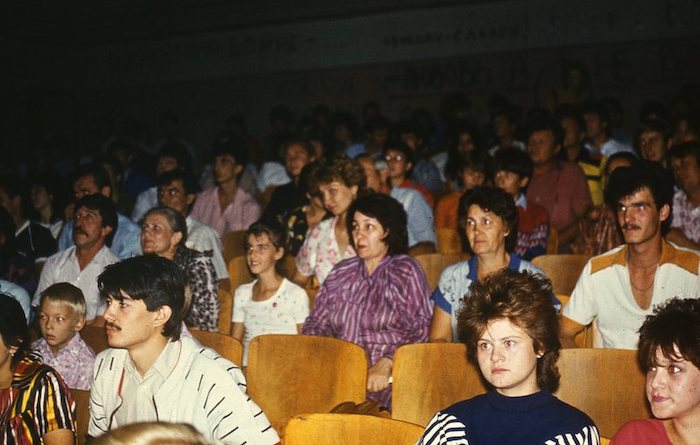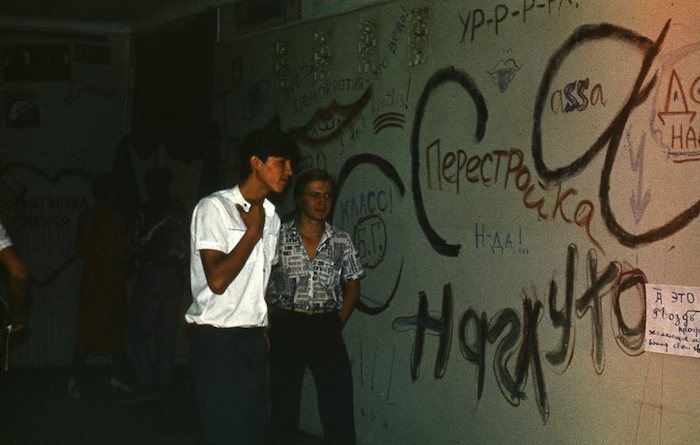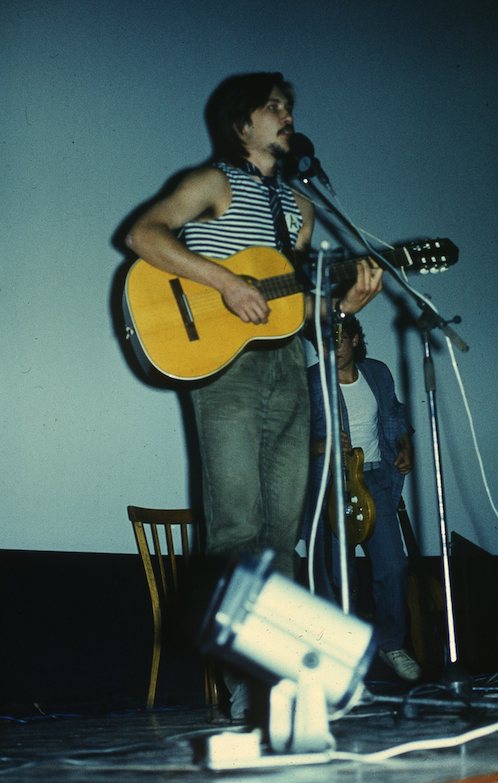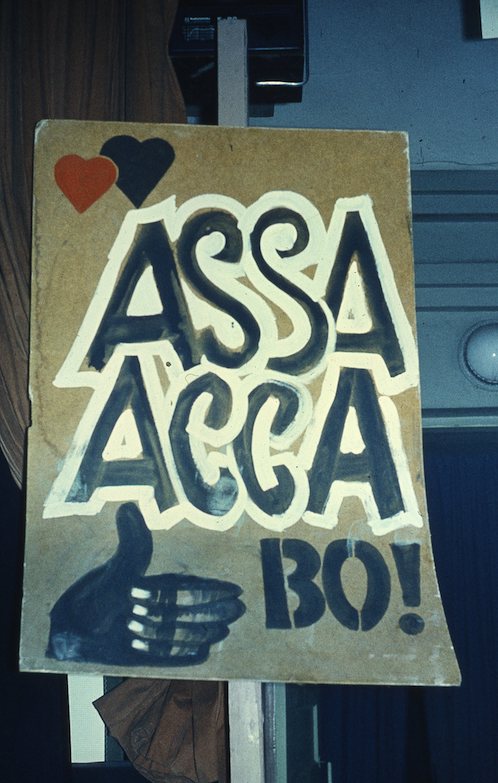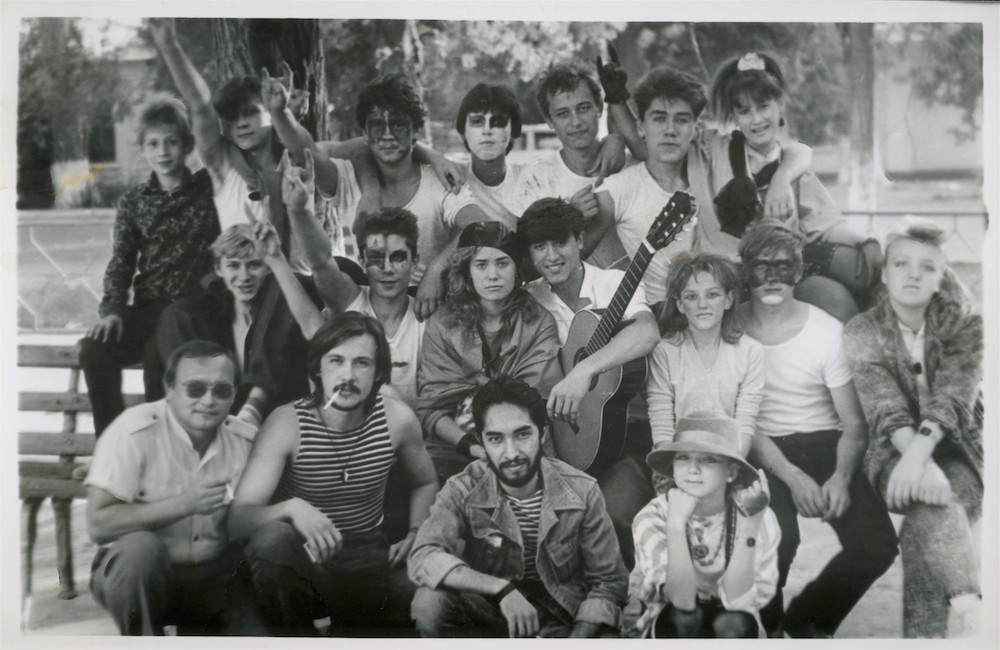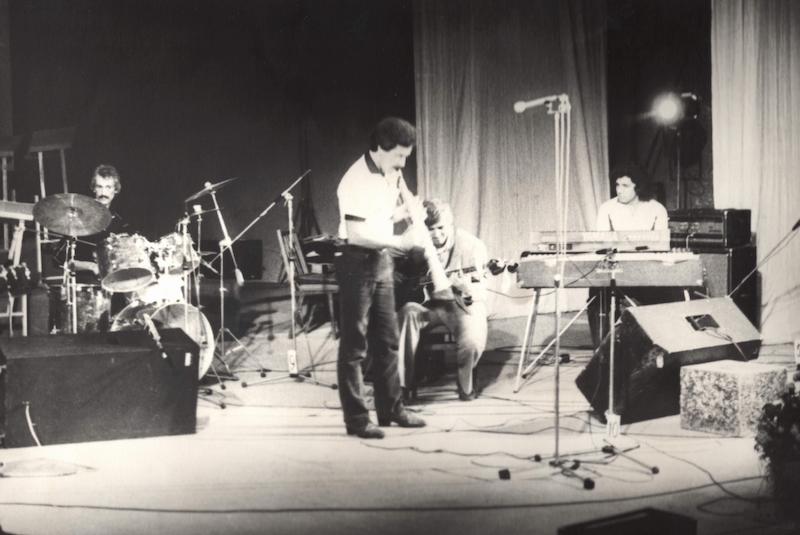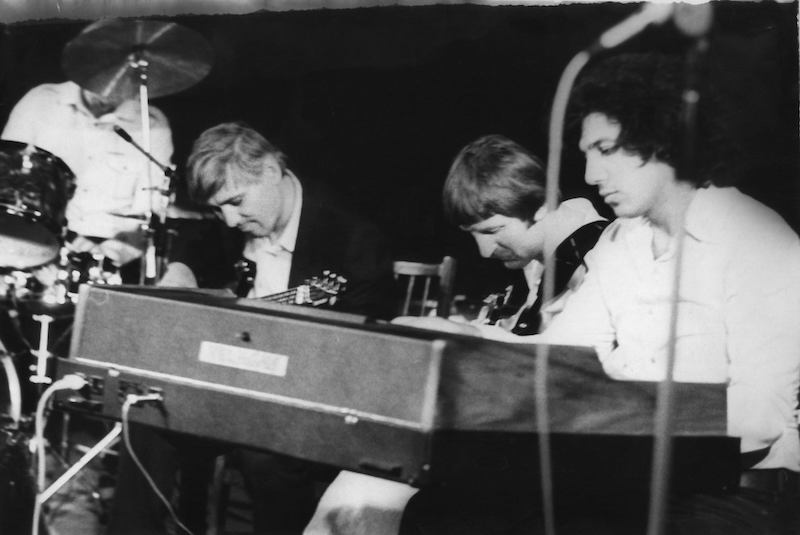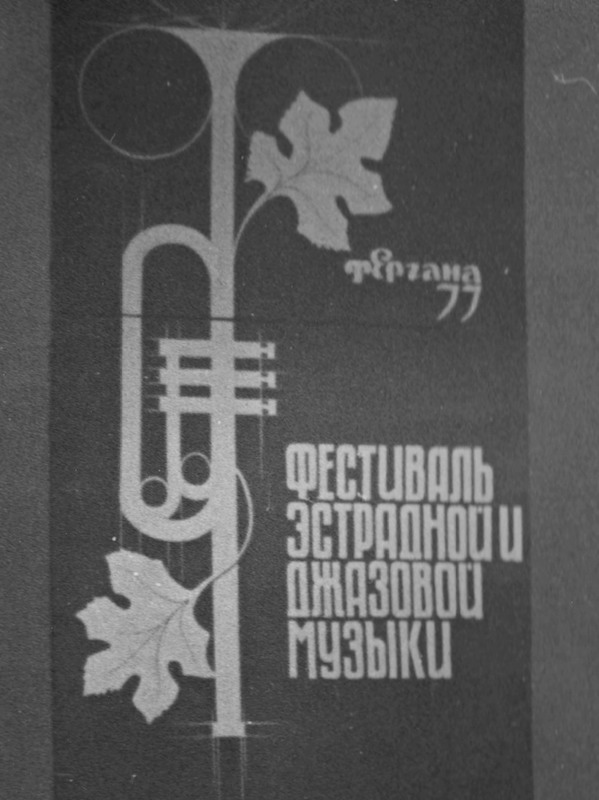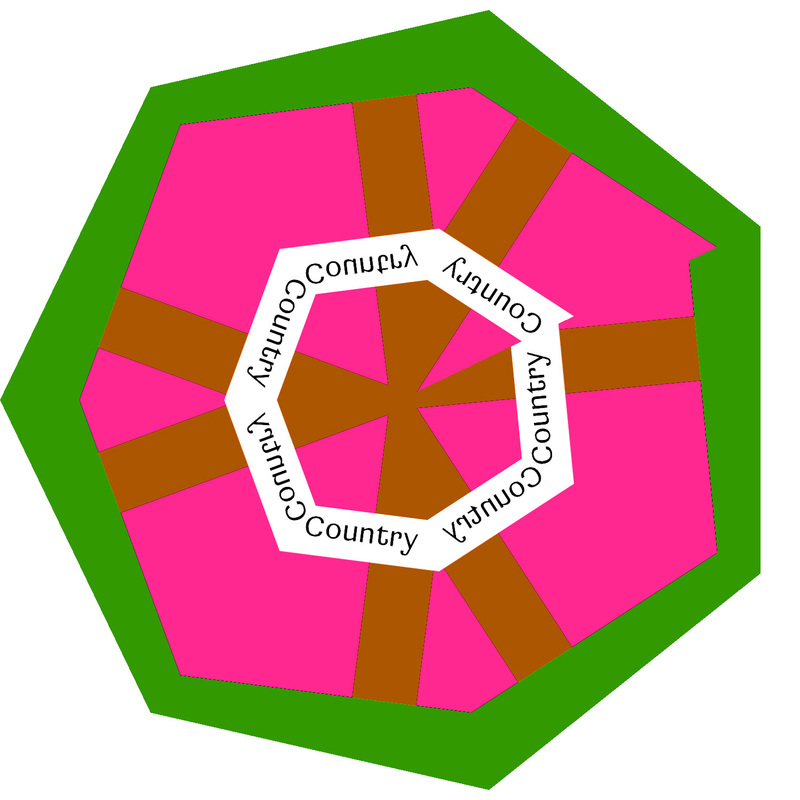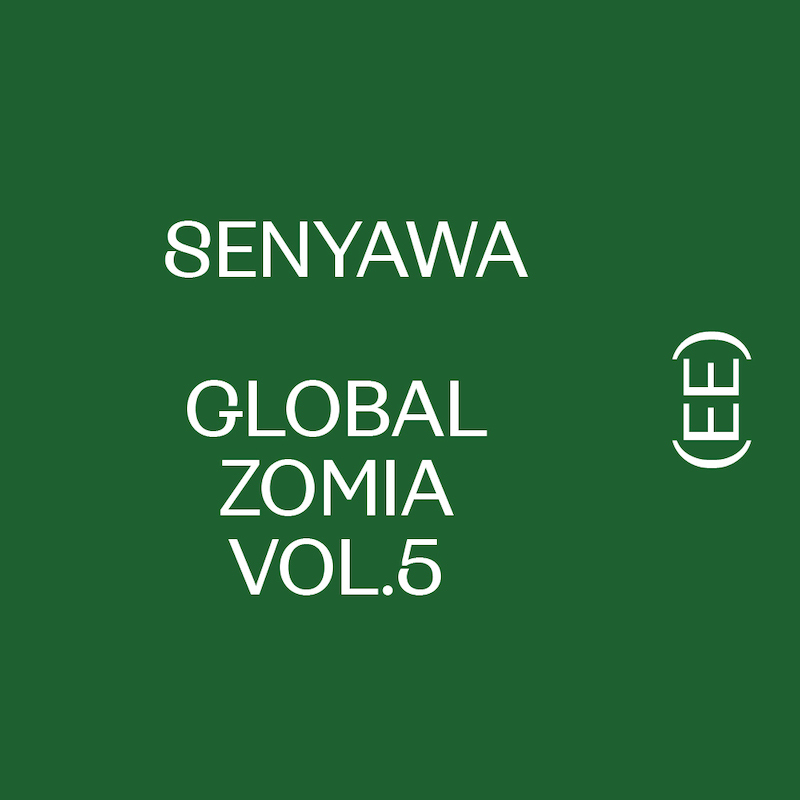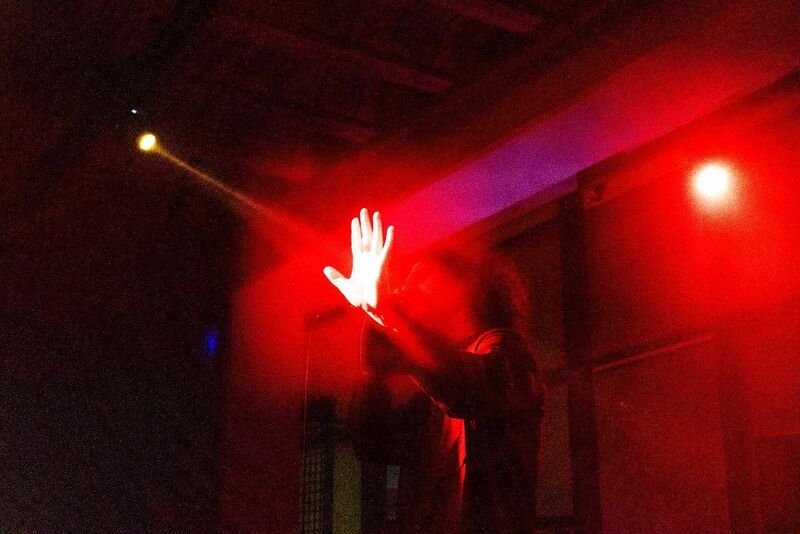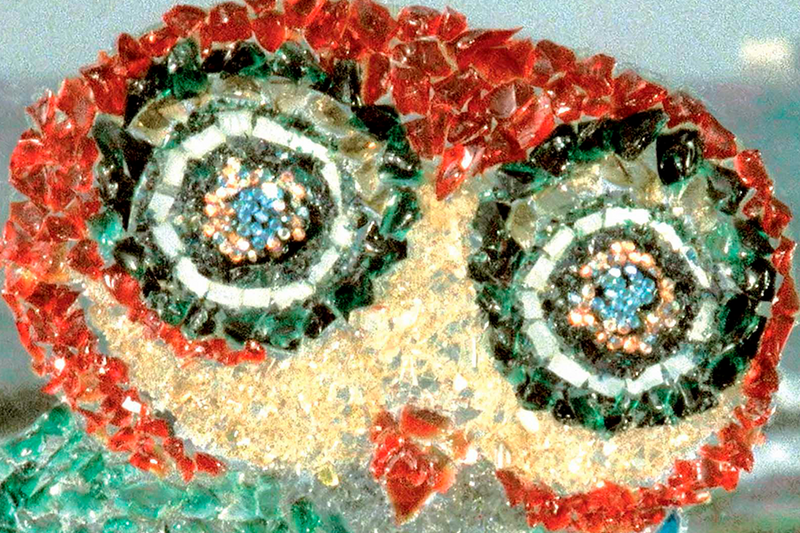Hamdam Zakirov is a poet, DJ, and connoisseur of Central Asian popular and jazz music, who was born in the city of Fergana, Uzbekistan. In the first of his texts for EastEast, he discusses the Sato jazz ensemble, cult avantgarde musician Sergey Kuryokhin, the most famous Roma singer in USSR, Valentina Ponomaryova, and these musicians’ connections to the Fergana Jazz Festival, which played an important role in the development of local scene and Soviet music in general.
In January 1988, after quitting military school in Leningrad and serving the required term in the Northern Fleet, I returned to my native Fergana. My life at once became a whirlwind: it was all about different paces, colors, and smells. Everything seemed doable and everything was waiting ahead. Perestroika, democratization, glasnost . . .
I got a job as a courier in a regional newspaper, entered the Journalism department of Tashkent University, studied poetry, read, listened, and watched a lot. My life was really busy! This was all thanks to editorial tasks, some of which I came up with on my own, and the cultural environment I unexpectedly found myself in. I started contacting amazing artists, poets, art critics, actors, and musicians who lived in our city, gaining a very diverse cultural perspective that was new for me. And—not without surprise—I was rediscovering my hometown.
“The Club of Cinema Lovers” turned out to be functioning at the Cosmos cinema, which we started attending to watch world masterpieces. I mean, at least those that were eventually allowed into Soviet film distribution at the time. There was also a bards’ club that both my friends and I started attending regularly, too. Well, mostly because one of my new friends knew and sang the songs of my favorite bands, Aquarium and Kino. As it turned out, there was also a jazz club in the city—if all of the above was a natural part of the perestroika period, it turns out the jazz club had actually existed for more than ten years by that point!
In the autumn of 1988, on the initiative of Rustam Dzhuraev (the director of that very Cosmos cinema), my friends and I organized a two-days presentation of Sergey Solovyov's film AssaAssaThe film Assa, about the adventures of a young nonconformist nicknamed “Bananan,” was released in 1987 and quickly became a symbol of perestroika. All of the main late Soviet rock musicians, such as Viktor Tsoi, Boris Grebenshchikov, and Zhanna Aguzarova, took part in recording the film's soundtrack.. Having no rock-related posters, we hung vinyl record jackets around instead. We painted graffiti on the walls of the lobby and at the cinema hall. The audience seemed to be given the green light to do it—one of the first steps on the path from “street hooliganism” to “contemporary art.” By the way, in the foyer, among other things, there was also a board into which anyone could literally “nail” their own drawing cards of the show using a hammer. In a nutshell, we were free to use our fantasies. Both professionals and amateurs could take part in the shows with bards and rockers among them . . . even schoolchildren, who, by the way, staged a semi-punk fashion show— ultramodern at that time. We even had our own “Bananan girl”! The band Sato also performed at our show.
Photos from Hamdam Zakirov’s archive
Frankly speaking, I was not a jazz fan then. My generation had some kind of prejudice towards brass instruments. Maybe it had to do with the numerous Soviet vocal instrumental ensembles, or maybe just because we were so passionate about rock—banned in our country at that time. So, we were suspicious of groups that had more than four or five participants. Drums, guitar, and bass were the maximum. Well, and the singer. Well, maybe also the keyboards. But not pipes! We were merciless toward wind instruments. Moreover, in those years rock was—or at least so was it perceived by us, the youth—about the manifestation of protest, while jazz seemed to be quite conformist. In addition, most jazz bands played something quite conventional, not going beyond generally accepted jazz standards. So, at that point it seemed to me that rock and roll was not dead yet, while you know where jazzmen were (as one song had itas one song had itTwo songs by the band Aquarium are being referenced here—“Rock and Roll Is Dead” and “Silent Cinema”).
Then, with all those thoughts on my mind, I was introduced to a Fergana jazz band. My first idea was like “well, of course, it’s a band that plays at some recreation center of our provincial Fergana—probably, purely amateurs.” But then I found out that the band had released their second record with Melodiya in 1987—just a year before. Of course, I immediately ran to the shop to buy Sato” records and listen to them. And then I got to know the musicians—having already had the chance to watch and listen to their live performance on the stage at the cinema at Assa premiere, where I was at once impressed by their professionalism. If I remember it right, on the first day the whole ensemble performed, while on the second day—Enver Izmailov performed solo.
Years later, while on a trip to Fergana, I took the surviving vinyl records from my mother’s house and discovered Sato again. The fixation on rock music I had had during my youth did not get in the way any longer—by that point I was listening to fusion, acid jazz, electronic, and funk music. I finally “heard” how brilliant all the band members played. It is easily recognizable from the solos—be it guitar, or keyboards, or flute . . . I heard how light and delicate orchestrations were and how they led the music beyond all the familiar genres. I am sure that every listener can feel that.
Sato was created by Leonid Atabekov in 1974. In 1977, its members initiated the establishment of that very Fergana jazz club and held the first Fergana jazz festival! Prior to that, the only jazz festival in Central Asia was held in Tashkent in 1969. In addition to Fergana, the author knows only of a jazz festival that was held in Almaty in 1988. Starting from the 1990s, festivals have been organized in Kazakhstan and Uzbekistan, but they are hardly seen as having international value, although sometimes regional performers and foreign guests take part in them.
From Leonid Atabekov’s archive
In total, three festivals were held in Fergana—in 1977, 1978, and 1984. The fourth one was supposed to take place in December 1988, but unfortunately it was canceled immediately after the opening concert that my friends and I attended, due to a terrible earthquake in StepanakertStepanakertThe Spitak earthquake occurred on December 7, 1988 in the north-west of the Armenian Soviet Socialist Republic destroying several cities and killing 25,000 people. In the country a national day of mourning was declared.. But even the three festivals and their performers—both already eminent and so far, at that time, little-known to the general public—were enough evidence to speak about these concerts as a significant phenomenon of the all-Union scale, as they used to say. I think that giving just a few names will be enough to be to illustrate its importance.
In his book Conversations on Jazz, the famous double bass player, then President of Tashkent jazz club, Sergey Gilev, recalls the second Fergana festival held in 1978, “Guests from Leningrad, namely Anatoly Vapirov's quartet consisting of A. Vapirov (sax, clarinet), S. Kuryokhin (piano), S. Grechkin (drums), V. Greshchenko (bass guitar and drums) were the real headliners of the festival. Vapirov demonstrated himself both as an excellent performer and an outstanding composer. The pianist of the ensemble S. Kuryokhin often performs in concerts with his solo program and forms various ensembles for his one-time performances. He is one of the brightest free jazz representatives.”
Valentina Ponomaryova from Moscow was one more interesting Fergana guest, a performer who could also be described as “a star from a completely different galaxy.” Having started her career as a jazz performer in the late 1960s, Valentina Ponomaryova performed romances and “gypsy songs,” as they were then described, almost throughout the whole decade remaining a soloist of the RomenRomenRomen is the Moscow musical and dramatic theater, founded in 1931. It was the first professional “Indo-Romani” theatre in the USSR, where one could see performances in the Romani language and adaptations of the works of Roma authors. theater and later as a soloist in the famous trio by the same name. But by the late 1970s, people’s interest in jazz started growing: in 1979 Valentina left the theater and took up solo jazz as her creative path. Who knows, maybe for her Fergana was not only one of the first performance platforms, but also the starting point on her journey back to jazz. In 1978, I was only twelve years old and, of course, I did not attend her shows. However, I learned about the jazz side of her work not long ago, when one of her jazz records appeared in my collection. Unlike Romen albums released in those years, that record turned out to open me up to a completely different world. It was from another planet!
Right: Poster of the Fergana-77 Jazz Festival
From Leonid Atabekov’s archive
I do not know what her repertoire was for the concert held on the second day of the festival in 1978, but it is known for sure that almost all Fergana gypsiesgypsiesUsually the ethnic minorities living in the Easter Europe as well as in Ukraine, Belarus, and Russia are designated as Roma people. In Central Asia, the term “gypsies” (or Lyuli) are used to refer to the local ethnic minorities, who differ from Roma people and are also mostly Muslim. Because of this, “gypsies” here seems appropriate, moreover this designation does not have such a negative connotation in the corresponding region. attended it. This was probably the most sold-out festival gig ever. Leonid recalls that the audience bombarded Valentina with notes. We can only wonder whether those who came to see and listen to “the most famous gypsy woman of the Soviet Union” could actually understand the avant-garde sketches against the background of free jazz experiments or whether they asked her to perform something more expectable.
So, it was exactly then, at that festival in Fergana in 1978, that Valentina Ponomaryova and Sergey Kuryokhin met each other—an encounter that marked the beginning of many years of friendship and the creative cooperation of Ponomaryova with Sergey Kuryokhin, Boris Grebenshchikov, and many other St. Petersburg jazz and rock musicians. Later, Ponomareva often participated as a guest in concerts and the recordings of Pop-MekhanikaPop-MekhanikaPop-Mekhanika is a band founded by Sergey Kuryokhin in 1984. All the performances of this group with non-permanent members were impromptu and could bring together completely different people, instruments, and objects. Some claim that in one of Pop-Mekhanika's performances, 464 people and one goat took part, whereas in others—trucks and a tank were spotted., Aquarium (Electroshock, 1982), and Anatoly Vapirov (Dukh Odgnu, 1987). Thus, one could actually state that this acquaintance in Fergana had a historical significance for the development of the Russian avant-garde, jazz, and even rock scenes.
In a telephone conversation with me, Leonid Atabekov recalled that Sergey Kuryokhin also came to Fergana a second time—to the festival of 1984, this time already with his own band. Leonid failed to remember its name, while it never crossed my mind to suggest Pop-Mekhanika. But when I did mention it, saying that later Kuryokhin started such a project, Leonid confirmed, “Yes, that's right, Pop-Mekhanika.”—which means that the band Kuryokhin formed in 1984 and which later became famous, performed one of its first concerts on the stage of the 3rd Fergana Jazz Festival!
Leonid recalled that, at some point in the performance, during the cellist’s solo, the rest of the band’s musicians began crawling across the stage and, reaching its edge which was decorated with flowers, started eating them! The next day, almost all of them suffered from stomach aches. Isn’t it a funny but also amazing story! The wish to shock, free jazz . . . in a nutshell, the very point of transcendence. We can say that at that moment the past, not fully realizing it, encountered the future. Well, it's nice that Fergana did not disappoint, and a scandalscandalAccording to information from a Wikipedia article, Aquarium was disqualified for inappropriate (as the judges regarded it) behavior on stage. Boris Grebenshchikov, while performing his song, lay down on the stage, placing the guitar between his legs. Seva Gakkel then placed a cello on top of him and the bassoonist Aleksandrov imitated gunfire in the direction of the hall. The jury found the performance obscene and saw homosexuality connotations in it." that had accompanied a similar shocking performance by Aquarium at the Tbilisi-80 festival a few years before, did not occur in my hometown.
Translated from Russian by Olga Bubich
